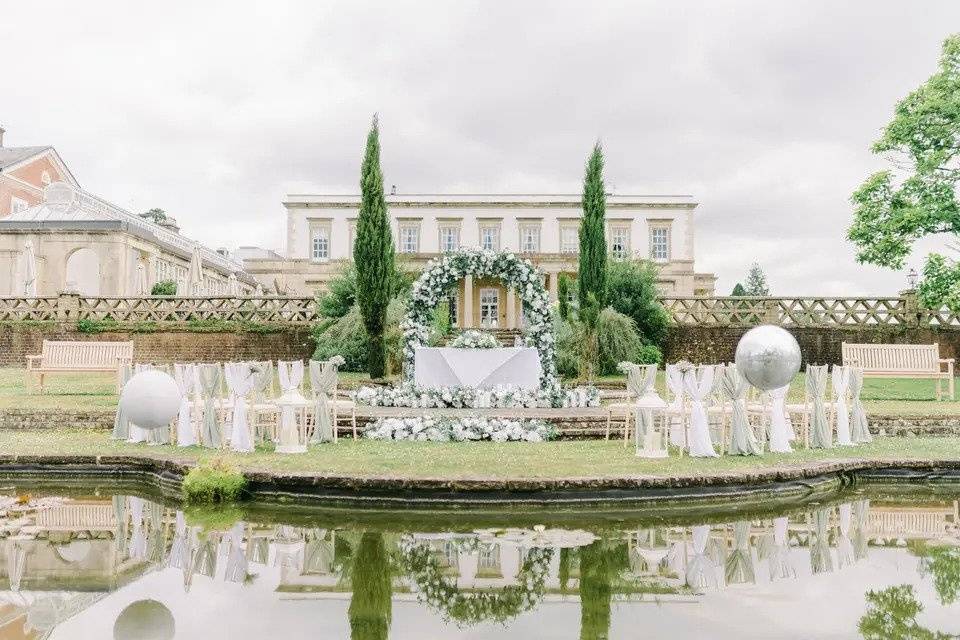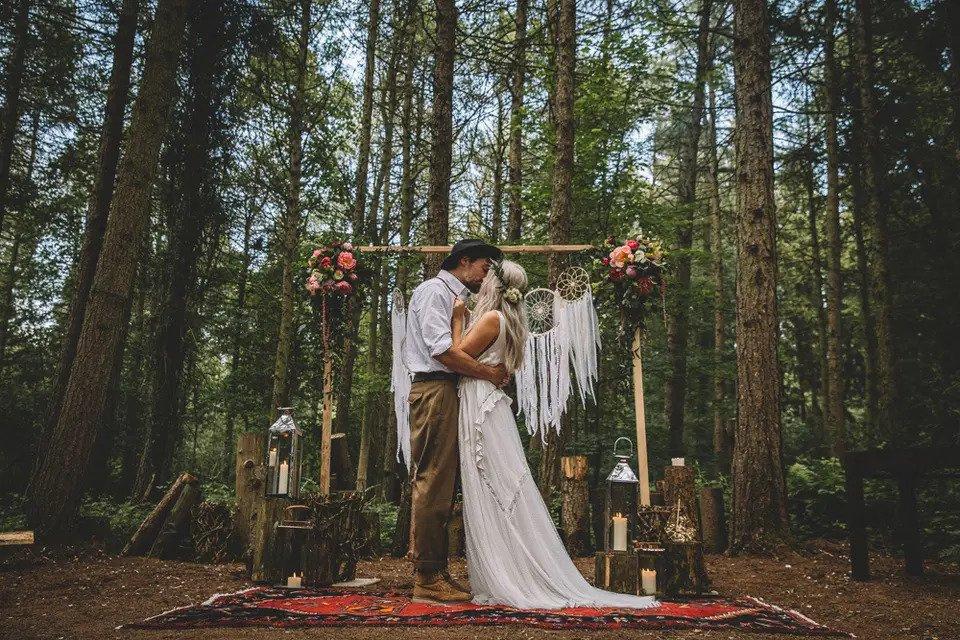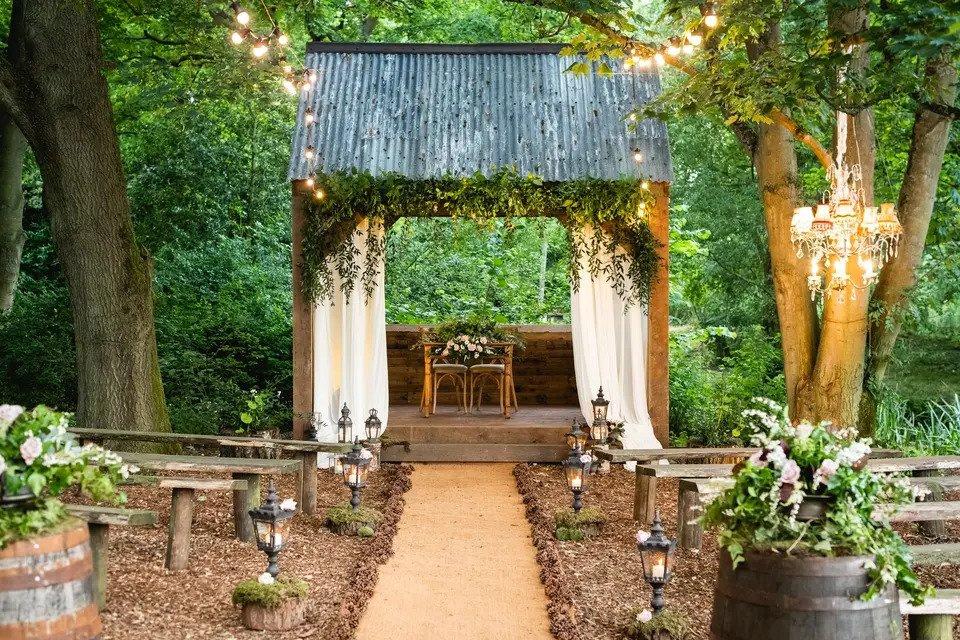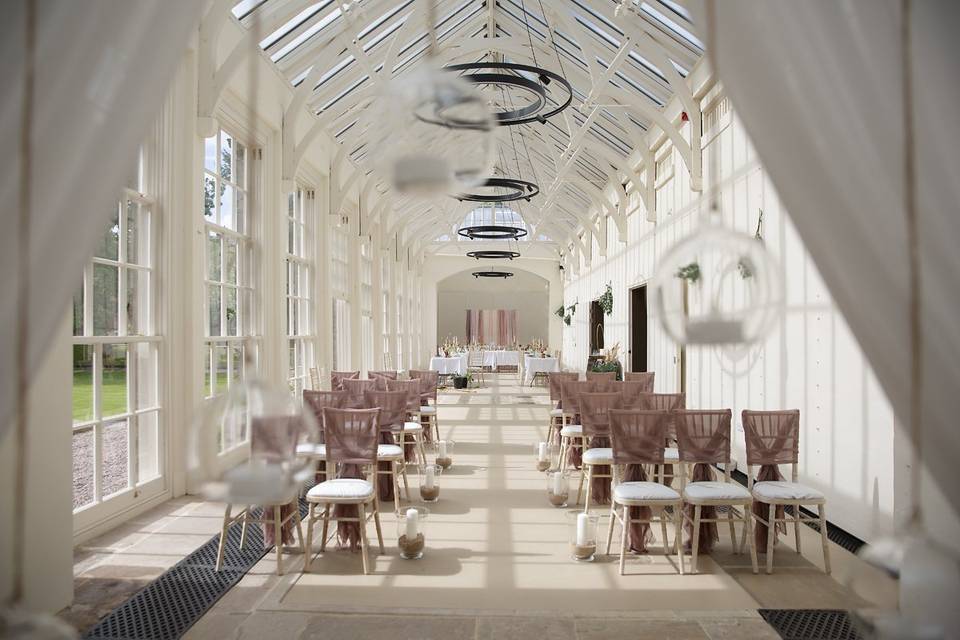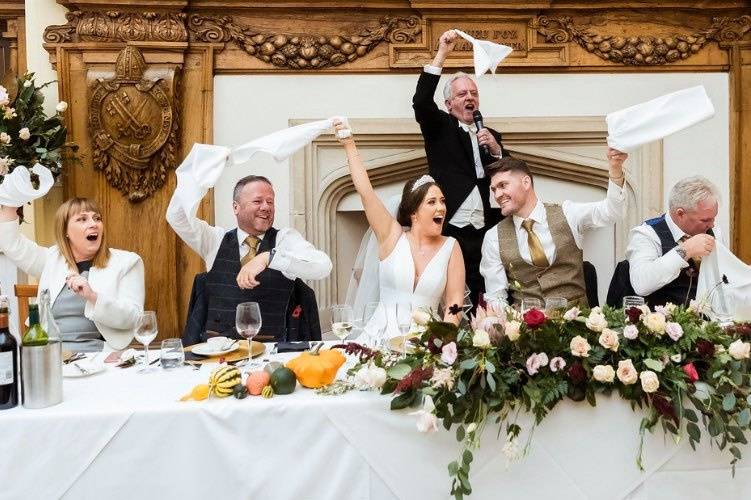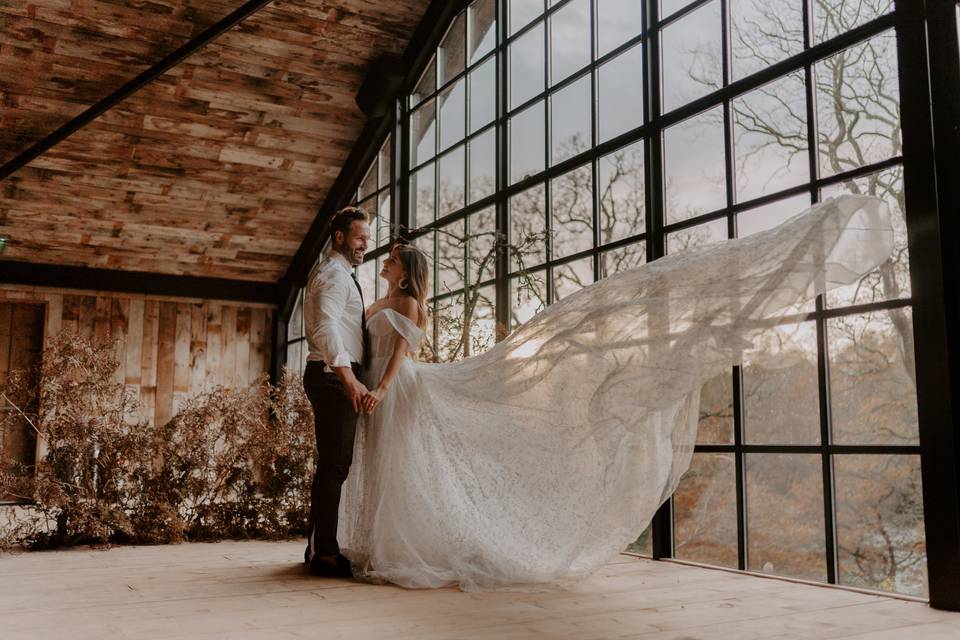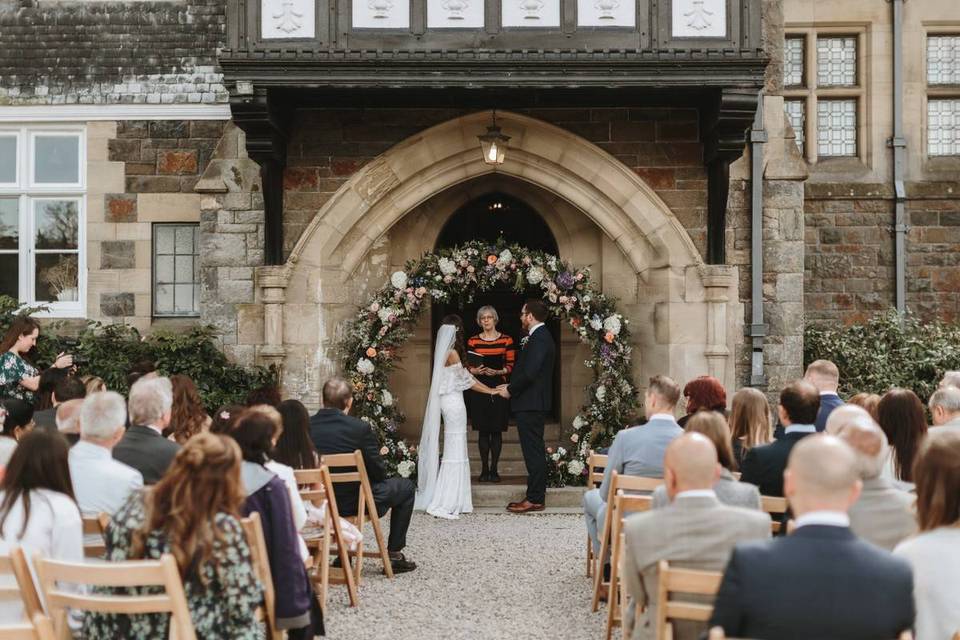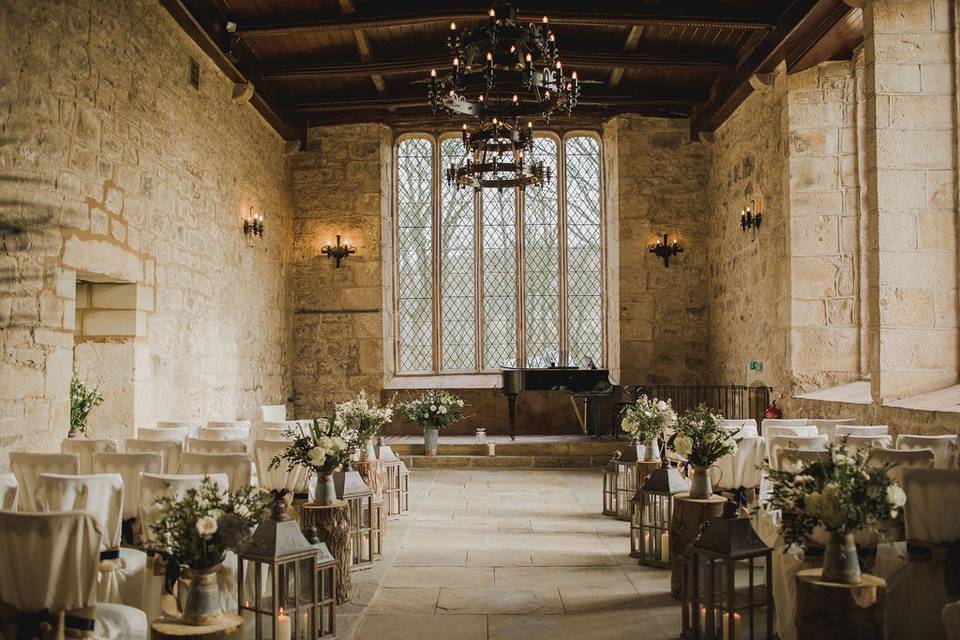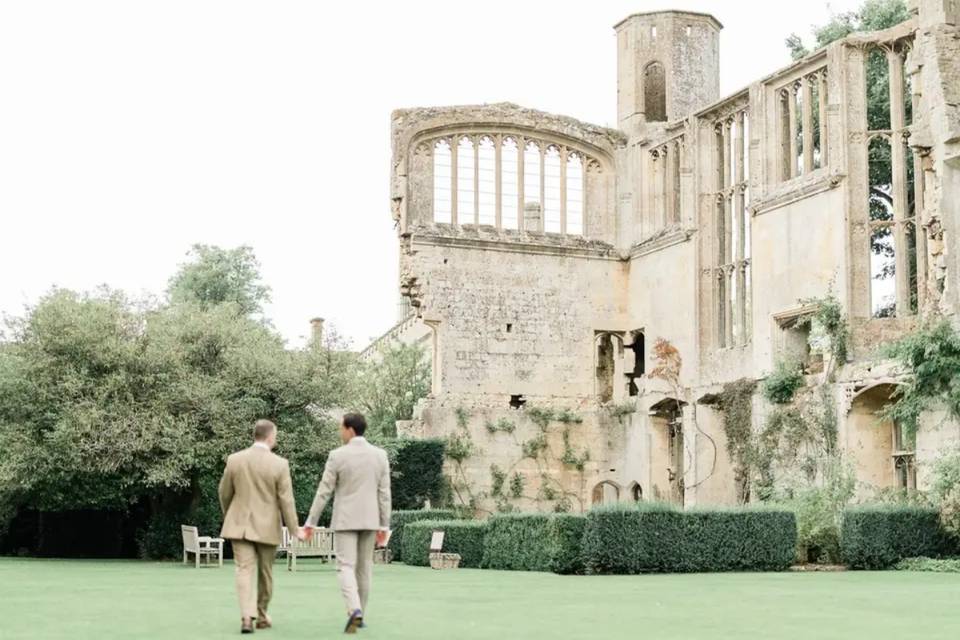Outdoor Ceremony Laws: What the New Wedding Venue Laws Mean For You
If you're considering an outdoor wedding venue, rule changes made in April 2022 could save you heaps of money on your wedding day!
We have included third party products to help you navigate and enjoy life’s biggest moments. Purchases made through links on this page may earn us a commission.
If you’ve wondered how to cut the cost of your wedding, a change to the law could save you thousands of pounds. Now, couples can get married outside as outdoor ceremony laws have had a revamp. During COVID, the government tweaked outdoor ceremony laws to allow more couples to tie the knot outdoors, and since April 2022, those rules have become permanent!
With the average cost of a wedding now sitting at £18,400 – and £8,400 of that going on wedding venue hire alone – the change to the outdoor wedding laws in the UK could save couples bags of money on their wedding ceremony and let them be much more creative with where they choose to marry.
Outdoor Ceremony Laws: What the New Wedding Venue Laws Mean For You
So, wondering what the new outdoor ceremony laws mean for you and your wedding day? We have everything you need to know about current wedding venue laws, exceptions in different parts of the UK plus a list of things to consider if you're planning an outdoor wedding.
- What Are the Current Wedding Venue Laws?
- What Do the Wedding Venue Laws Mean for UK Couples?
- Things to Consider When Planning Your Outdoor Wedding
What Are the Current Wedding Venue Laws?
The latest legal updates, The Marriages and Civil Partnerships: Approved Premises Amendment came into force on 6th April 2022. This amendment states that legal outdoor civil weddings and civil partnership ceremonies can take place anywhere on the grounds of an approved premises - a full list of approved premises can be found on the gov.uk website.
These regulations only apply to approved premises, meaning that religious premises and non-approved premises are not included and can not be used to host a legal outdoor wedding ceremony. You can, of course, have a wedding blessing or non-legal ceremony outdoors at a non-approved premises, but you will not be legally married afterwards.
Leanne from outdoor wedding venue fforest sheds some light, saying, "The laws were relaxed temporarily during COVID to enable ceremonies to be conducted outdoors at approved premises due to the restrictions imposed on social distancing, and only very small numbers permitted indoors.
"Prior to COVID, outdoor civil ceremonies were not legally permitted, meaning all ceremonies had to be conducted indoors or within an approved sheltered partially enclosed structure to be legal."
Relaxed outdoor wedding laws were introduced in the UK in the summer 2021. After widespread public support, the government decided to make these laws permanent, giving couples greater freedom when planning their day.
And that's not the only change, now, wedding venues are able to hold multiple ceremonies each day, meaning small, intimate and micro-weddings can get married for less by hiring a venue for just part of a day.
What Do the Outdoor Wedding Venue Laws Mean for UK Couples?
As many couples find themselves working to a wedding budget, relaxing restrictions on where you can host your outdoor wedding gives UK couples more variety, lots of choice and a lot more flexibility with their wedding venue and location.
Couples should bear in mind that outdoor wedding laws in the UK differ depending on country. In Scotland, a civil wedding ceremony can be held anywhere as long as this has been agreed with the registrar (not including religious premises), while religious or belief ceremonies can take place anywhere as long as they are conducted by an approved officiant.
In Northern Ireland, where you can get married depends on the type of ceremony you're having. Religious and humanist ceremonies can take place anywhere, as long as the officiant agrees to it and permission is granted by the owner of the land or premises.
Outdoor civil ceremonies in Northern Ireland can only take place in locations that have been licensed as an approved premises by the council. A full list of approved premises can be found on the Northern Ireland government website.
8 Things to Consider When Planning Your Outdoor Wedding
1. You Could Save on the Wedding Budget
If you’d love to tie the knot in an outdoor wedding venue and reduce your costs, it's good news for you. In fact, there’s lots of ways you can use your outdoor setting to help you save money on your wedding. As long as you keep in mind that your guests will always need food, drink, seating, some shelter and toilet facilities, you can DIY lots of your wedding when it's outdoors to try to keep costs down.
There's also now more wedding packages on offer for couples to get married outdoors, and venues may even reduce costs as, by allowing couples to legally marry outside, they may find themselves with several wedding venues in what used to be a venue that could host just one do a day! A castle wedding venue may now double up as a garden wedding venue if the grounds can also host ceremonies.
The relaxing of restrictions means that more pubs and restaurants are likely to apply for licences too. If you’re having an intimate wedding, a pub wedding venue can be a very cost-efficient wedding venue.
2. More Choice For Your Wedding Venue
With the outdoors opened up to you, couples can now be hugely creative with their outdoor wedding venues. More and more couples are prioritising having a day that's personal to them above many other things on their wedding wish list.
If you've dreamt of tying the knot by the at a seaside wedding venue, in a forest or by a romantic lake, you'll now have plenty more options.
3. Just One Wedding Ceremony
Some couples feel they have to compromise by having a legal ceremony separate from their 'wedding' if they’re marrying in an outdoors or unlicensed area.
It can be an inconvenience for couples to have to spend the morning of their wedding or the day before getting the formal, legal part out the way before they can have their 'real day'. Being able to hold your ceremony and reception all in one place will both save you money and make for a smoother, and often more enjoyable experience.
In general, these new rules can keep everyone happy by finally being able to hold your legal ceremony and reception all in one place.
4. The British Weather
It’s the UK; we have sunny days and we have torrential downpours! Speak to your wedding venue early about whether there’s an indoor space to move to, or, as Leanne advises, "Always have an indoor option as a plan B just in case." There are plenty of ways to make rain on your wedding day work, you just need to have a plan in mind.
We do have a list of the best months to get married depending on historic British weather, including a breakdown of average rainfall, temperature, daylight hours and more.
5. Planning Logistics
Weddings take a lot of time and effort to arrange and doing it outdoors can potentially add an extra layer of stress. We've seen some serious heat waves in recent years, so having water and shade incase of a heatwave wedding is smart. Be sure that, when taking on outdoor wedding planning, you're confident you can pull off the day as you want and provide for all your guests’ needs.
6. Consider the Accessibility
When choosing your wedding venue, it's important to take into account the different needs of your guests. It may simply not be possible for elderly or disabled guests to get to your chosen location.
As Leanne says, "Distance and access over uneven or unpaved ground is a serious consideration for attendees with mobility issues."
If a wheelchair, pushchair or any elderly guests can’t make it down that sandy beach, it could be worth considering another option.
7. Choose Your Outfit Wisely
Stiletto heels will be a no-no in sinking grass, and the hem of your gorgeous satin wedding dress might be ruined if it’s dragged along a muddy river bank. These certainly aren’t deal breakers but you need to bear in mind how an outdoor ceremony will affect what you can wear. Short wedding dresses or a clear path to walk down will solve many an issue, so be sure to plan ahead!
8. Be Aware of Timings
You’ll need to consider all the things that might not occur to you otherwise if you go outdoors. For example, avoid high tide at the beach if you don’t want a soggy dress and maybe stick to seasons other than summer if you know your partner has terrible hay fever.
Leanne also advises, "If you are planning a wedding in a natural environment, consider the season you view the location because if you want the trees to be in blossom or flowers in bloom, then you'll need to pick the same time of year when you choose your wedding date."
If you’re looking for other clever ways to save money on your wedding day, check out our ultimate wedding spend breakdown for budgeting tips from the start to the finish of the wedding planning process.

